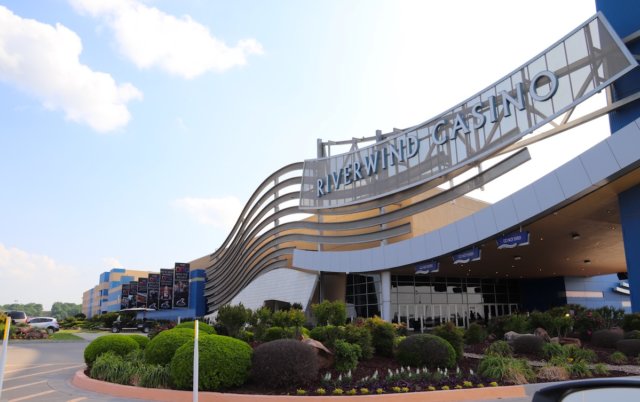
Following the Monday-morning announcement of a U.S. Supreme Court decision that struck down a federal ban on sports betting, parties in Oklahoma are considering potential opportunities.
Discussions about allowing “sportsbook” in the Sooner State bubbled up throughout the 2018 Oklahoma legislative session, with some American Indian tribes pushing for language that would authorize the form of gambling if Murphy v. NCAA resulted in the federal Professional and Amateur Sports Protection Act being ruled unconstitutional.
“With the removal of sports-betting language from both the House and the Senate ‘ball and dice’ bill this last legislative session, we are going to have to wait until the next legislative session to see where the Legislature might want to go with this,” Sheila Morago, executive director of the Oklahoma Indian Gaming Association, said Monday afternoon.
Morago emphasized that her association does not advocate political positions, but she confirmed that some tribes are considering options now that the Supreme Court decision has been handed down.
“There are some tribes that are very interested in it,” she said. “Like everybody else, this thing came out very quickly. Everybody is working on it and seeing what can happen, from all over the country. Not just here.”
Chickasaw Nation Secretary of Commerce Bill Lance said in statement sent to NonDoc that Monday’s court ruling “is a vital first step in creating a safe and well-regulated sports gaming market.”
“We look forward to working with the State of Oklahoma on a compacting supplement to address sports pool, which is something that could be easily implemented along the lines of what the Oklahoma Legislature made room for with respect to ‘ball and dice’ games this past session,” Lance said. “We believe such a step would be critical to protecting and enhancing the tribal gaming market that already provides substantial fiscal benefits to Oklahoma, the gaming tribes, and all Oklahomans.”
Lance emphasized that the legalization of sports betting could bring billions of dollars out of the black market and into regulated economies.
“The American Gaming Association estimates that illegal sports gambling is a $1.6 billion industry annually in Oklahoma and $150 billion a year nationally,” he said.
Oklahoma’s Model Tribal Gaming Compact could be up for renegotiation in 2020, although the Legislature could also authorize sports betting earlier than that.
‘Profound effects’ on real and fantasy sports
While the potential for gambling on athletics could develop new economies within many states across the country, the nation’s largest sports leagues had hoped to retain the prohibition that functionally allowed only Nevada to house bookmaking operations.
From Associated Press writer Jessica Gresko:
The federal government and all four major U.S. professional sports leagues and the NCAA had urged the court to uphold the federal law, with the leagues saying a gambling expansion would hurt the integrity of their games. Those concerns are rooted in past gambling scandals. The leagues don’t want anyone thinking the outcome of their games could be altered by someone with money on a certain result, and they argued that with legal sports betting in the United States they’d have to spend a lot more money monitoring betting patterns and investigating suspicious activity.
Sports gambling proponents argue that the leagues already do that work and that legal sports betting will make enforcement easier than it is now, when most bets in the U.S. are made illegally. They say state regulators are capable of monitoring suspicious bets, as is done in Nevada.
On Monday, Major League Baseball issued a statement saying the Supreme Court ruling would have “profound effects” on the league and that it would “continue to seek the proper protections for our sport.”
In recent years, the “fantasy sports” industry had earned revenue growth from the operation of “daily fantasy” games in which players pick athletes in a professional league for a one-day competition with other competitors.
Monday, the Fantasy Sports Trade Association sent out a press release that attempted to reiterate the difference between fantasy games and gambling, while expressing support for both.
From the FSTA’s release:
We expect that many fantasy sports companies will elect to offer sports gambling products in addition to their fantasy sports games and the FSTA intends to support those member companies.
We are excited about the variety of gameplay innovations that will be developed in the future. Consumers will benefit from a new era of fantasy games that merge fantasy sports and sports betting.
To date, 19 states have formally legalized fantasy sports and the FSTA expects that trend to continue as states begin legalizing sports betting.
We emphasize that fantasy sports are games of skill and we continue to stress the distinctions between fantasy sports and sports betting.
The biggest potential downside to the legalization of sports betting is the prospect of heightened, costly regulation. If fantasy sports operators are lumped together with sports gambling companies, fantasy sports companies may be required to meet the regulatory standards of gambling companies. With this in mind, we will continue to work for common sense legislation, fee structures that allow all operators to remain viable and clarification that fantasy sports contests are legal games of skill.





















